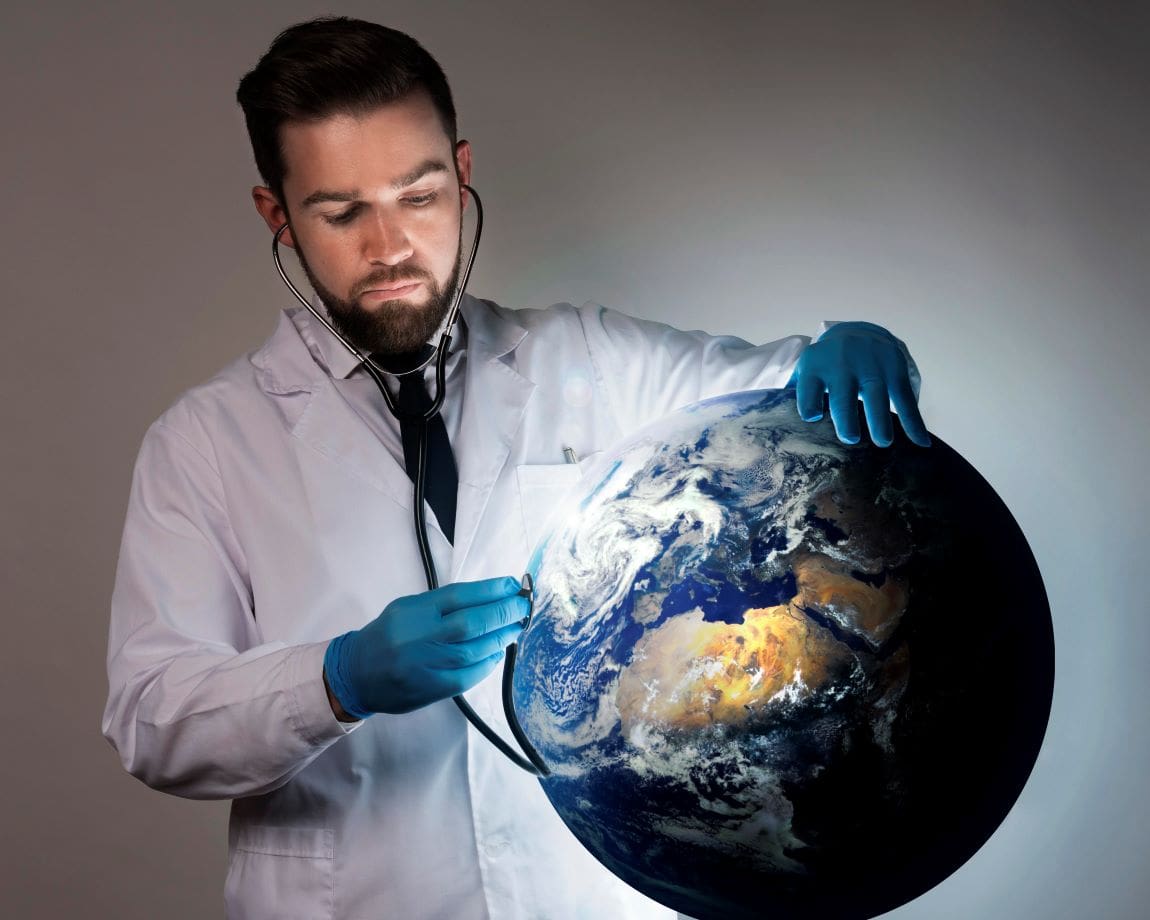Climate education in health professional training is essential for addressing the health impacts of climate change and preparing a resilient healthcare workforce.
By Julia Milzer | University of Colorado Anschutz Medical Campus
Doctors and researchers at the University of Colorado Anschutz Medical Campus published a discussion paper highlighting key initiatives to help strengthen, train and prepare doctors and health care workers for the impact of climate change on human health.
The paper is published in the National Academy of Medicine Perspectives.
The authors, who come from a diverse background in healthcare from pediatrics to emergency medicine, and nursing to pharmacy, outline the importance of educating a climate-savvy health care workforce and highlight educational opportunities to fulfill the critical need.
“As climate change increasingly exacerbates disease and health crises, it’s crucial that health professional education evolves to address this pressing issue. Currently, there is a significant gap in understanding how environmental changes impact health, and how health systems can adapt and lead in this area,” said Jay Lemery, MD, professor of emergency medicine and director of the Climate and Health Program at the University of Colorado School of Medicine.
Lemery and his colleague Bhargavi Chekuri, MD, launched a first-of-its-kind Diploma in Climate Medicine Program to advance health professional leadership and expertise in addressing the health consequences of global warming. Chekuri, who is also an assistant professor of family medicine at the CU School of Medicine, now directs the program.
The need for robust climate-focused education and resources
In the paper, the co-authors outline best practices from examples of climate-focused educational initiatives in undergraduate, graduate and continuous education programs that promote environmental health and climate-resiliency.
They also look at ways education, policy and communication need to evolve to provide better access and accreditation.
Chekuri notes: “There’s a lack of robust guides and resources tailored to professional roles, such as providing both a basic and a gold standard for climate change and health education and facilitating continuous assessment of learners via clear competencies and milestones.”
Building on prior work, the authors propose a developmental learning model with six interconnected domains. These domains start with foundational skills in communication and collaboration and progressively build toward more advanced competencies in managing climate-related health risks.
“We believe offering a structured approach for integrating climate change and health education throughout health professional training can help advance competencies in managing climate-related health risks,” said Lemery.
Chekuri and co-author Beth Gillespie, MD, assistant professor of internal medicine, note the need for a circular and iterative approach to climate and health education, that gradually builds on foundational communication skills and environmental health knowledge.
The paper concludes by delving into how interprofessional education can be leveraged to transform the healthcare sector to be more environmentally sustainable and resilience.
Journal Reference:
Lemery, J., T. O’Connor, B. Gillespie, H. Blackburn, S. Demorest, R. Phillipsborn, and B. Chekuri, ‘Opportunities for Strengthening Climate Education for Clinical Health Professionals’, NAM Perspectives (Discussion Paper), National Academy of Medicine (2024). DOI: 10.31478/202409b
Article Source:
Press Release/Material by University of Colorado Anschutz Medical Campus
Featured image credit: Freepik




